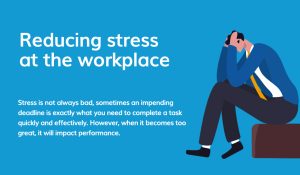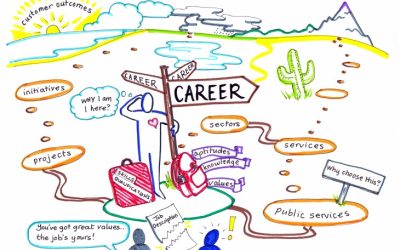How to Reduce Stress at Work: Strategies for a Calmer Professional Life

In today’s fast-paced work environment, stress has become a common companion for many professionals. High levels of stress not only affect your productivity and job satisfaction but can also have serious implications on your health and well-being. Fortunately, there are effective strategies to manage and reduce stress at work. This blog explores practical steps you can take to create a more serene and enjoyable work experience.
1. Prioritize and Organize
One of the primary sources of work stress is the feeling of being overwhelmed by tasks. Prioritize your work by distinguishing between urgent and important tasks. Utilize tools and techniques such as to-do lists, digital planners, or the Eisenhower Box to manage your tasks more effectively. Organizing your work can significantly reduce stress by making your workload more manageable.
2.Set Realistic Goals
Setting achievable goals within realistic timeframes is crucial. Unrealistic expectations can lead to disappointment and increased stress. Break down larger projects into smaller, manageable tasks, and set clear milestones. Celebrate small achievements along the way to stay motivated.
3. Take Regular Breaks
Continuous work without breaks can lead to burnout and stress. Short, frequent breaks throughout the day can help clear your mind and improve focus. Techniques like the Pomodoro Technique, which involves working for 25 minutes followed by a 5-minute break, can enhance productivity while reducing stress.
4. Learn to Say No
Taking on more work than you can handle is a surefire way to increase stress. Learn to say no or delegate tasks when your plate is full. Being honest about your capacity for work will help maintain your mental health and ensure the quality of your work remains high.
5. Develop Healthy Responses
Instead of coping with stress through unhealthy habits like smoking or overeating, find healthier ways to manage stress. Exercise, meditation, and hobbies can be effective outlets. Activities such as yoga and mindfulness exercises can also help reduce stress levels significantly.
6. Establish Boundaries
In today’s digital world, it’s easy to feel like you’re always “on.” Establish clear boundaries between work and personal time. This might mean turning off email notifications after work hours or setting specific times when you are not available for work-related queries. Respecting these boundaries is crucial for stress reduction.
7. Improve Communication Skills
Effective communication can resolve many work-related stresses. Expressing your thoughts and concerns clearly, listening to others, and engaging in constructive feedback can improve your work relationships and reduce misunderstandings and conflicts.
8. Seek Support
Whether it’s from colleagues, friends, family, or mental health professionals, support is vital. Sharing your experiences and challenges can provide relief and offer new perspectives on managing stress. Many employers also offer wellness programs or counseling services as part of their benefits package.
9.Optimize Your Workspace
A cluttered, uncomfortable workspace can contribute to stress. Make your work area a pleasant, organized space. Personal touches like plants, photos, or ergonomic furniture can make a significant difference in your comfort and stress levels.
10. Practice Gratitude
Focusing on positive aspects of your work and life can shift your perspective on stress. Practicing gratitude by acknowledging things you’re thankful for in your professional life can foster a positive work environment and reduce stress.
Conclusion
While stress at work is common, it doesn’t have to be a defining feature of your professional life. By implementing these strategies, you can manage stress more effectively and create a healthier, more enjoyable work environment. Remember, taking care of your mental health is just as important as meeting deadlines and achieving professional success.



